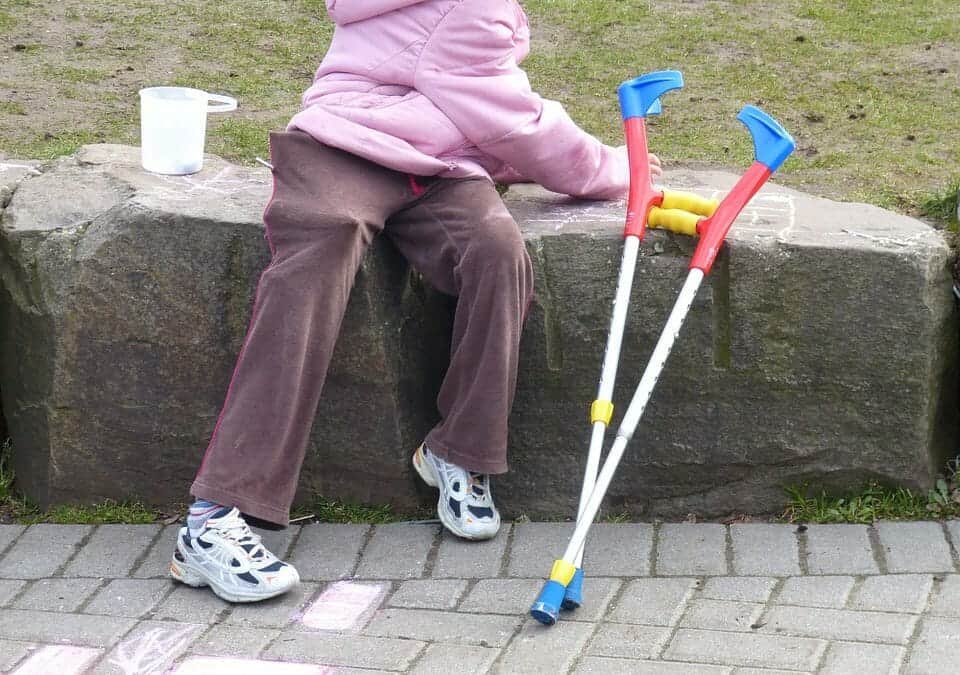Benefits For Children With Disabilities
If you have a child whom you believe may be disabled, you may find that he or she is entitled to Social Security Disability (SSDI) benefits or Supplemental Security Income (SSI) benefits. There are three different kinds of benefits for children with disabilities. The three types of benefits for children with disabilities include:
- SSI Benefits for children — These are benefits payable to disabled children under age 18 who have limited income and resources, or who come from homes with limited income and resources.
- Social Security Dependents Benefits — These are benefits payable to children under the age of 18 who have parents collecting retirement or disability benefits from Social Security. Social Security Dependents benefits may also be received by children who are under the age of 18 and are survivors of a parent who has passed away. Although children under age 18 who are eligible for these benefits might be disabled, the Social Security Administration does not need to consider their disability for them to be qualified for benefits. A child who receives dependents’ or survivors’ benefits may continue receiving those benefits until age 19 if he or she is a full-time student in elementary, middle or high school.
- Social Security benefits for adults disabled since childhood — The benefits explained in the previous sections normally stop when a child reaches 18 (or 19 if the child is a full-time student). However, those benefits can continue to be paid into adulthood if the child is disabled. To qualify for those benefits, an individual must be eligible as the child of someone who is getting Social Security retirement or disability benefits, or of someone who has died, and that child must have a disability that began prior to age 22. Even though most of the people receiving these benefits are in their 20s and 30s (and some even older), the benefit is considered a “child’s” benefit because of the eligibility rules.
Non-Medical Rules
SSI is a program that pays monthly benefits to people with low incomes and limited assets who are 65 or older, blind, or disabled. Children can qualify if they meet the Social Security Administration’s definition of disability and if their income and assets fall within the eligibility limits.
As its name implies, Supplemental Security Income supplements a person’s income up to a certain level. The level varies from one state to another and can go up every year based on cost-of-living increases. Check with you local Social Security office to find out more about the SSI benefit levels in your state.
Rules For Children Under 18
Most children do not have their own income and do not have many assets. However, when children under age 18 live at home (or are away at school but return home occasionally and are subject to parental control), the Social Security Administration considers the parent’s income and assets when SSA decides if the child qualifies. SSA refers to this process as “deeming” of income and assets.
Check with you Social Security office for information you child’s specific situation and for a full explanation of the “deeming” process.
Rules for Children 18 and Older
When a child turns 18, SSA no longer considers the parent’s income and assets when SSA decides if he or she should receive SSI benefits. A child who was not eligible for SSI before his or her 18th and continues to live with his or her parent(s), but does not pay for food or shelter, a lower payment rate may apply.
How the Social Security Administration Decides If A Child Is Disabled
While you local Social Security office decides if you child’s income and assets are within the limits to the child eligible for SSI, all documents and evidence pertaining to the disability are actually sent to your state office, which is called the Disability Determination Service (DDS). At DDS, a team comprised of a disability evaluation specialist and a doctor reviews your child’s case to decide whether he or she meets the definition of disability.
If the available medical records are not thorough enough for the DDS team to make a decision, you may be asked to take your child to a special examination that the Social Security Administration will pay for. It is very important that you do this and that your child puts forth his or her best effort during the examination, or the results of the examination will not be considered valid. Failure to attend the examination, or invalid results due to poor effort, may result in an unfavorable decision.
The law states that a child will be considered disabled if he or she has a physical or mental condition (or a combination of conditions) that results in “marked and severe functional limitations.” The condition must last, or be expected to last at least 12 months, or be expected to result in the child’s death. And, the child must not be working at a job that SSA considers to be substantial work.
To make this decision, the disability evaluation specialist first checks to see if the child’s disability can be found in a special listing of impairments that is contained in the Social Security Administration’s regulations, or if the condition is medically or functionally equal to an impairment that is on the list. These listings are descriptions of symptoms, signs or laboratory findings of more than 100 physical and mental problems, such as cerebral palsy, mental retardation or muscular dystrophy, that are severe enough to disable a child, but the child’s condition does not have to be one of the conditions on the list. If the symptoms, signs or laboratory findings of the child’s condition are the same as, or medically equal in severity to the listing, the child is considered disabled for SSI purposes. He is she also will be considered disabled if the functional limitations from his or her condition or combination of conditions are the same as the disabling functional limitations of any listed impairment.
To determine whether the child’s impairment causes “marked and severe functional limitations,” the disability evaluation team obtains evidence from a wide variety of sources that have knowledge of your child’s condition and how it affects his or her ability to function on a day-to-day basis and over time. These sources include, but are not limited to, the doctors and other health professionals who treat your child, teachers, counselors, therapists, and social workers. A finding of disability is based on evidence from many sources and will not be based solely on your statements or whether your child is enrolled in special education classes.
What Makes Ritchie Law Firm Different?
Many Virginia lawyers say they practice Social Security Disability law. But, most of those lawyers have not had years of experience winning Social Security Disability cases. That’s what makes us different. At the Ritchie Law Firm, we have a team of lawyers who have the experience of handling Social Security Disability cases and WINNING. Sure, we also handle personal injury cases. But, Social Security Disability cases are a different beast. And, we know how to handle them.
If you have been denied Social Security Disability benefits, our disability team will review your denial letter for FREE. Then, with no obligation and NO STRINGS ATTACHED, we’ll tell you our game plan for winning your case.
If you want your disability case handled by a team of lawyers trained to handle this difficult area of the law that few lawyers know the first thing about, your search is over. Whatever stage of applying for benefits you are in, whether you haven’t yet applied or you’ve been denied, we are happy to help. Click here to give us some details about your case.
Call Us Today To Talk With Our Disability Team
800-277-6124



